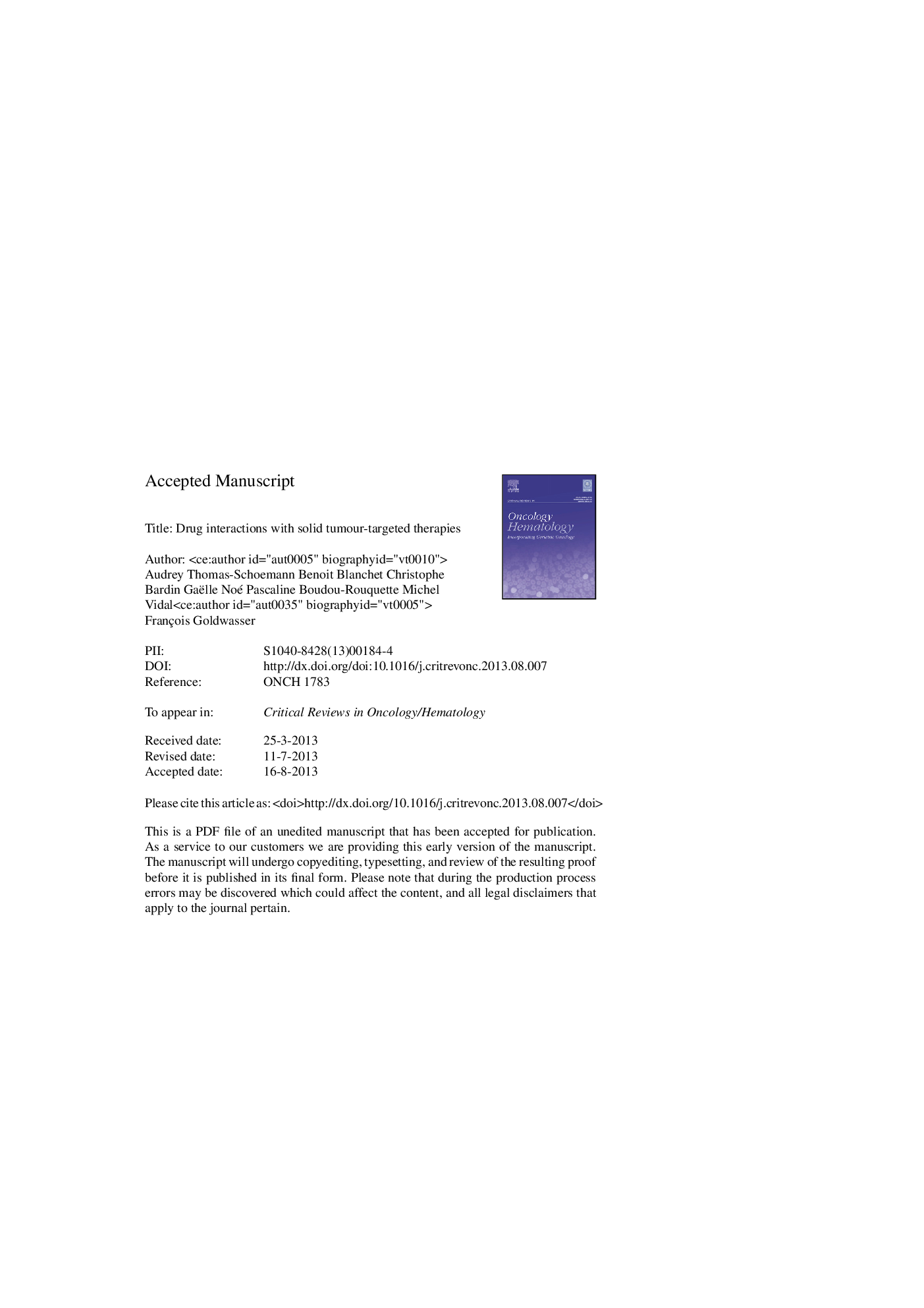| Article ID | Journal | Published Year | Pages | File Type |
|---|---|---|---|---|
| 6113677 | Critical Reviews in Oncology/Hematology | 2014 | 42 Pages |
Abstract
Drug interactions are an on-going concern in the treatment of cancer, especially when targeted therapies, such as tyrosine kinase inhibitors (TKI) or mammalian target of rapamycin (mTOR) inhibitors, are being used. The emergence of elderly patients and/or patients with both cancer and other chronic co-morbidities leads to polypharmacy. Therefore, the risk of drug-drug interactions (DDI) becomes a clinically relevant issue, all the more so as TKIs and mTOR inhibitors are essentially metabolised by cytochrome P450 enzymes. These DDIs can result in variability in anticancer drug exposure, thus favouring the selection of resistant cellular clones or the occurrence of toxicity. This review provides a comprehensive overview of DDIs that involve targeted therapies approved by the FDA for the treatment of solid tumours for more than 3 years (sorafenib, sunitinib, erlotinib, gefitinib, imatinib, lapatinib, everolimus, temsirolimus) and medicinal herb or drugs. This review also provides some guidelines to help oncologists and pharmacists in their clinical practice.
Keywords
UDP-glucuronyl transferaseP-gp5FUTKIABC5-FluorouracileEnzyme-inducing antiepileptic drugsBcrpDDImTORUGTCyPCmaxAUCP-glycoproteincytochrome P450 enzymesHerb–drug interactionsDrug–drug interactionsSolid tumourTargeted therapiesPharmacokineticsarea under the curveTyrosine kinase inhibitorTyrosine kinase inhibitorsmammalian target of rapamycinMammalian target of rapamycin inhibitorsbreast cancer resistance proteinATP-binding cassette
Related Topics
Health Sciences
Medicine and Dentistry
Hematology
Authors
Audrey Thomas-Schoemann, Benoit Blanchet, Christophe Bardin, Gaëlle Noé, Pascaline Boudou-Rouquette, Michel Vidal, François Goldwasser,
